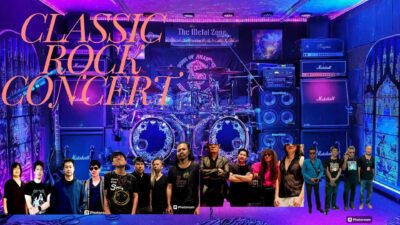

Hyundai Motor Co., the first automaker to mass-produce fuel-cell vehicles, plans to unveil a new hydrogen-powered SUV next year with longer driving range than rival offerings by Toyota Motor Corp. and Honda Motor Co. as it attempts to reclaim leadership in the field.

South Korea’s largest automaker will show off the new model along with a new fuel-cell bus early next year during the Winter Olympic Games in Pyeongchang, Kim Sae-hoon, who oversees the technology at the Seoul-based automaker and affiliate Kia Motors Corp., said in an interview. At the Seoul Motor Show this week, Hyundai will showcase a fuel-cell SUV prototype with a range of more than 800 kilometers (about 500 miles) on a single refuel.

Although Hyundai was initially ahead in the commercialization of fuel-cell vehicles, it ceded the race to Toyota in terms of sales because of poorly developed infrastructure at home and a high sticker price overseas.
“We want to lead the changes in terms of technology,” Kim said at Hyundai’s fuel cell R&D center in Mabuk. “When there is industrial restructuring and emergence of new technologies, it gives a new opportunity to us.”
Hyundai sold 242 ix35 fuel-cell cars last year, while Toyota delivered 2,050 Mirais in 2016, 1,100 of those in Japan. South Korea only has 10 hydrogen-charging stations for research and none for commercial use, while Japan has built 79 facilities, with another 12 planned as of January, according to Fuel Cell Commercialization Conference of Japan, an industry group. Japan is targeting to increase the number to 160 by 2020 and 320 by 2025.

Shrinking Engine
Kim said Hyundai is working on shrinking the size of a fuel-cell powertrain to one that’s comparable to an internal-combustion engine, so it can fit into various models as well as reduce costs.
To help Hyundai’s push for fuel-cell cars, South Korea in August started a government-industry group with the goal of putting 10,000 FCVs on the road, exporting 14,000 units and setting up 100 charging stations at home by 2020. A committee set up in February to support the alliance plans to come up with a detailed plan this year to advance FCV adoption.

Globally, Hyundai is part of the consortium that counts Toyota and oil industry giant Royal Dutch Shell Plc as members, with plans to invest a combined 10 billion euros ($10.7 billion) in hydrogen-related products within five years.
But FCVs may face headwinds in the U.S. where President Donald Trump is reviving a review of fuel-efficiency regulations following a lobbying push by automakers.








Hyundai Motor Co., the first automaker to mass-produce fuel-cell vehicles, plans to unveil a new hydrogen-powered SUV next year with longer driving range than rival offerings by Toyota Motor Corp. and Honda Motor Co. as it attempts to reclaim leadership in the field.

South Korea’s largest automaker will show off the new model along with a new fuel-cell bus early next year during the Winter Olympic Games in Pyeongchang, Kim Sae-hoon, who oversees the technology at the Seoul-based automaker and affiliate Kia Motors Corp., said in an interview. At the Seoul Motor Show this week, Hyundai will showcase a fuel-cell SUV prototype with a range of more than 800 kilometers (about 500 miles) on a single refuel.

Although Hyundai was initially ahead in the commercialization of fuel-cell vehicles, it ceded the race to Toyota in terms of sales because of poorly developed infrastructure at home and a high sticker price overseas. “We want to lead the changes in terms of technology,” Kim said at Hyundai’s fuel cell R&D center in Mabuk. “When there is industrial restructuring and emergence of new technologies, it gives a new opportunity to us.” Hyundai sold 242 ix35 fuel-cell cars last year, while Toyota delivered 2,050 Mirais in 2016, 1,100 of those in Japan. South Korea only has 10 hydrogen-charging stations for research and none for commercial use, while Japan has built 79 facilities, with another 12 planned as of January, according to Fuel Cell Commercialization Conference of Japan, an industry group. Japan is targeting to increase the number to 160 by 2020 and 320 by 2025.

Shrinking Engine Kim said Hyundai is working on shrinking the size of a fuel-cell powertrain to one that’s comparable to an internal-combustion engine, so it can fit into various models as well as reduce costs. To help Hyundai’s push for fuel-cell cars, South Korea in August started a government-industry group with the goal of putting 10,000 FCVs on the road, exporting 14,000 units and setting up 100 charging stations at home by 2020. A committee set up in February to support the alliance plans to come up with a detailed plan this year to advance FCV adoption.

Globally, Hyundai is part of the consortium that counts Toyota and oil industry giant Royal Dutch Shell Plc as members, with plans to invest a combined 10 billion euros ($10.7 billion) in hydrogen-related products within five years. But FCVs may face headwinds in the U.S. where President Donald Trump is reviving a review of fuel-efficiency regulations following a lobbying push by automakers.


































